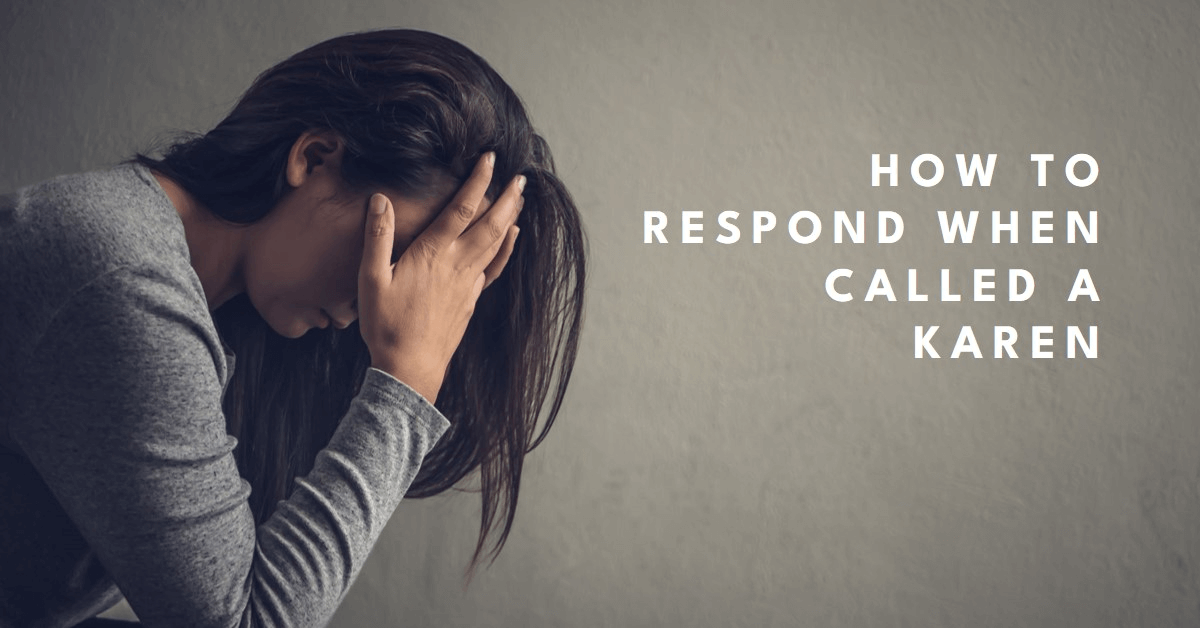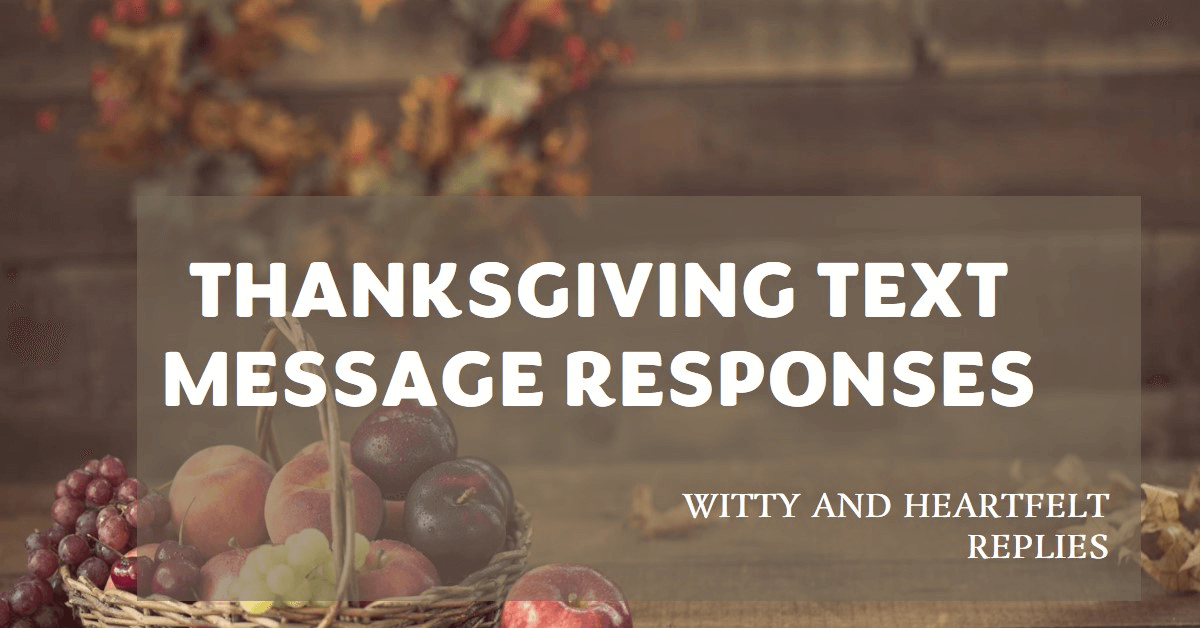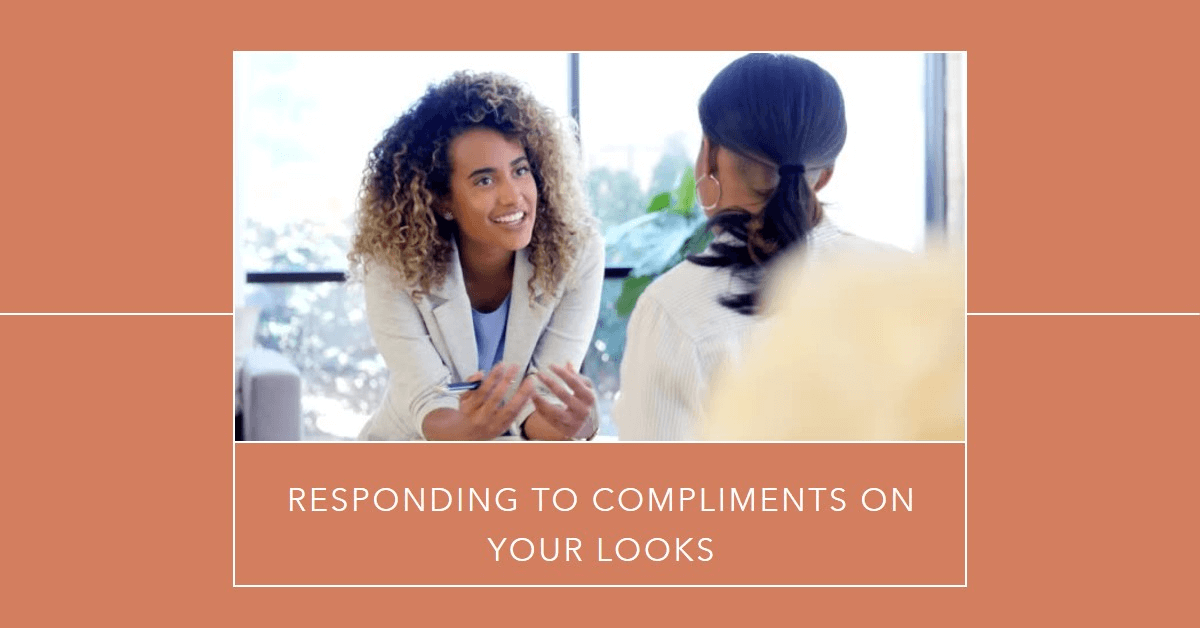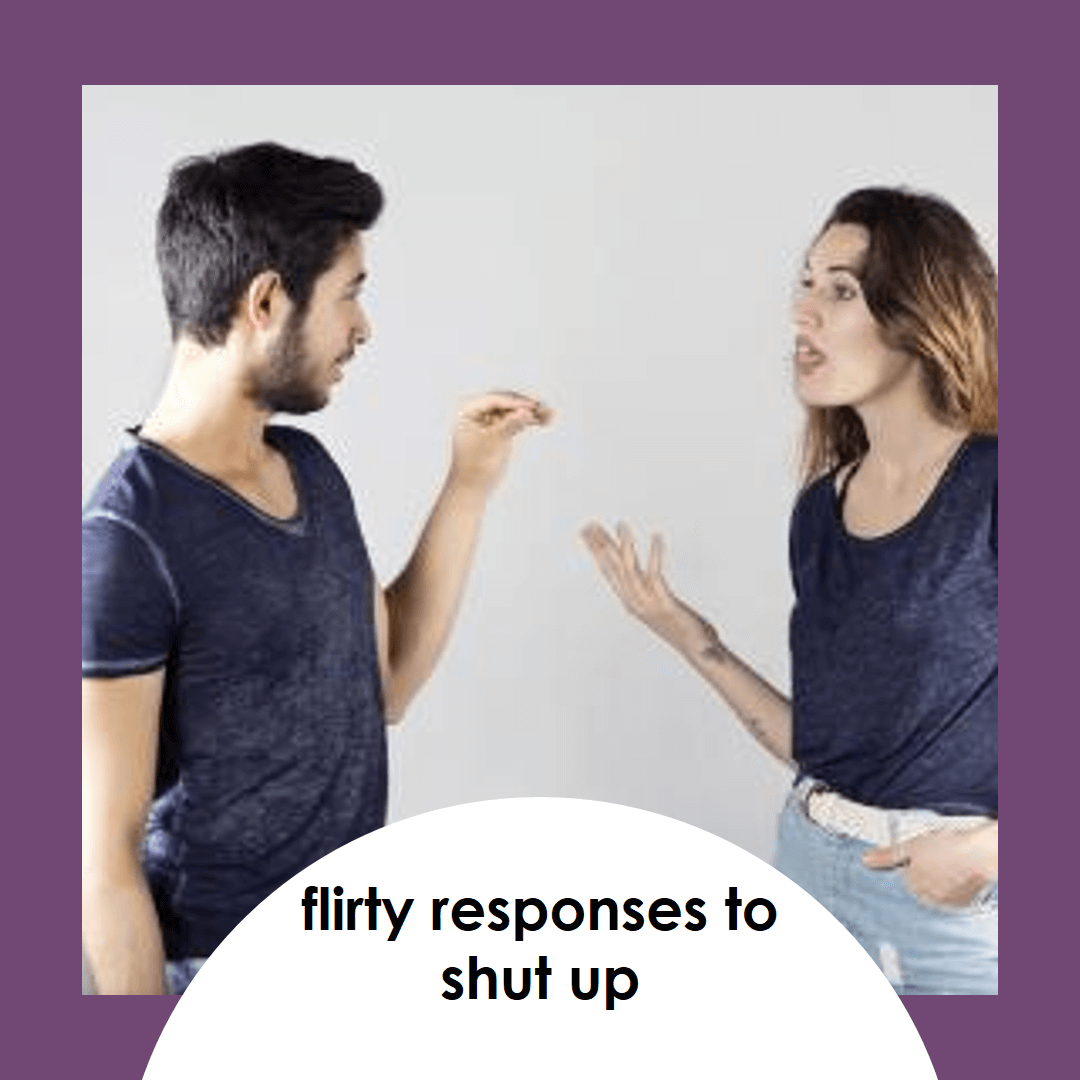What Should You Say If Someone Calls You a “Karen”? Expert Tips

In 2024, being labeled a “Karen” carries heavy implications casting you as entitled, rude, racist, or wanting to speak to the manager. But what if someone unjustly hurls this insult your way? How exactly should you respond?
This guide covers expert strategies to thoughtfully react, diffuse tension, and stand up for yourself if wrongly slapped or someone calls you a karen stereotype. Learn phrases to dismiss accusations while upholding your true character.
Discover tips from communications professionals on navigating this complex cultural phenomenon with grace, understanding, and tact.
Contents
- What Does Being Called a “Karen” Imply?
- Why People Resort to Karen Stereotypes
- The Problem With Karen Mislabels
- How to React in The Moment
- Sample Initial Responses
- Do’s and Don’ts
- Strategies to Address the Person Afterwards
- Email templates
- Managing workplace situations
- When is Manager Escalation Appropriate?
- Ways to Counter & Prevent False Accusations
- The Danger With Absolutes & Assumptions
What Does Being Called a “Karen” Imply?

While originating as light internet humor about annoying customer antics, the “Karen” moniker evolved into charged shorthand for:
- Rude public outbursts – Yelling at retail/service staff, disruptive behavior
- Racist undertones – Unjustly calling police on minorities, misusing privilege
- Demanding to “speak to the manager” – Complaining to authority figures over insignificant issues
- General entitled behavior – Indignance when not receiving one’s way
The name also tends to target middle-aged white women. However, usage spread to call out anyone perceived as acting entitled or irrational in public situations.
Make no mistake – “Karen” is now a supreme insult. But context matters greatly whether it lands accurately or unfairly.
Why People Resort to Karen Stereotypes

Before examining responses, it helps to understand why someone may ignore nuance and fling this barbed label around unfairly:
Lack of Context – Observers often witness only an outburst snippet absent full background. A woman firmly asking to check an order may appear entitled without knowing key item mistakes persist. Judgments based on limited information.
Unconscious Bias & Stereotyping – Even well-intentioned folks make harmful assumptions based on appearances. Pre-judgements of how certain groups should act slip out unintentionally through implicit bias.
Anger Issues & Impatience – Lashing out stems from personal struggles, not target traits. We all have bad days when stress boils over emotionally. Those called Karens could have recently lost jobs, have ill kids, or face anxieties over racism themselves. Jumping to insult skips the benefit of the doubt.
Limited Emotional Intelligence – Some simply lack refined social awareness and mirror harmful memes without consideration. Immature judgment is aimed through naivety more than malice. These folks need guidance on respecting themselves.
To Exert Counter Control – Public shaming attempt regaining personal power after embarrassment. Being denied a refund or rejected romantically stings – “Karen” retorts try diminishing the source as petty revenge.
While explanations never fully excuse unempathetic insults, it reminds responding thoughtfully stays vital. Karen accusers may suffer personal issues themselves commanding compassion.
The Problem With Karen Mislabels

Even called in jest, misfiring Karen accusations can deeply damage:
Reputations – Today accusations spread globally in minutes through smartphone videos. Outbursts failing basic sensitivity tests cause PR nightmares. Nuance won’t save you.
Self-Concept – Facing unjust criticism about identity characteristics like gender/race inflicts psychological harm. Internalizing attacks erode courage and self-esteem over time.
Innocent Intentions – Many “Karens” had fair motivations ignored. Calling security on threatening individuals gets mocked by editing footage and removing context. Asking for wrong food orders and corrected labels one a nuisance rather than helping the next patron. We lose perspective.
Societal Empathy – Ensuring only egregious violations of conduct ever surface online risks normalizing apathy. If sharing conflicts featuring minorities garners fame, what examples mold wider consciousness? Do we selectively exploit only some groups as viral amusement?
Bottomline – public shaming through baseless stereotypes breeds fear and division more than accountability. It often says more about the name-caller.
20 responses to give when someone calls you a “Karen”:
| What to say when someone calls you a “Karen” | |
|---|---|
| 1 | I find that term offensive and dismissive of women who stand up for themselves. |
| 2 | Calling me names doesn’t help resolve the situation, let’s talk about this respectfully. |
| 3 | I’d appreciate it if you didn’t use sexist slurs. |
| 4 | That’s an unproductive label that distracts from the real issue here. |
| 5 | Name calling is inappropriate. I’m just trying to address a problem. |
| 6 | Let’s have a reasonable discussion without resorting to insults. |
| 7 | I find that term demeaning to women. Please don’t call me that. |
| 8 | The “Karen” stereotype is sexist and dismissive. I’d appreciate being treated with respect. |
| 9 | That term promotes negative stereotypes. I’m an individual asking a fair question. |
| 10 | It’s not constructive to label someone that way just for speaking up. |
| 11 | I have a right to speak up when I see a problem. Calling me names won’t help. |
| 12 | That term is unnecessarily hostile. Let’s be civil to each other. |
| 13 | I don’t appreciate being stereotyped. Now can we discuss the issue at hand? |
| 14 | Name calling distracts from addressing the real problem here. |
| 15 | I find that term ageist and sexist. I’m just voicing my concerns. |
| 16 | Let’s not resort to insults. I’m raising a legitimate issue. |
| 17 | I don’t think dismissing someone as a “Karen” is constructive at all. |
| 18 | That stereotype is tired and sexist. Can we move this discussion forward? |
| 19 | Name calling discourages people from speaking up about problems. |
| 20 | I’d appreciate not being labeled in a dismissive way. Let’s talk respectfully. |
How to React in The Moment

When first labeled a “Karen’, staying composed before responding helps short-circuit accusations from escalating:
Sample Initial Responses
- “I apologize if I gave a poor impression but I never intended harm.”
- “For clarity, I aimed to resolve this minor issue, not cause disruption.”
- “Let’s reflect carefully before unjustly labeling others online.”
- “I understand frustrations but ask we exchange perspectives respectfully.”
Do’s
- Pause and breathe
- Speak slowly, firmly
- Find common ground
- Suggest reconciling privately
- Stick with facts
- Show willingness to understand their viewpoint
Don’ts
- Raise your voice
- Cry or get emotional
- Insult back
- Storm off angrily
- Make legal threats
- Post video clips publicly in retaliation
Simply say you never meant to offend, want to understand their exact concerns better, and ask to amicably reconcile differences going forward. Kill them with kindness.
If they persist in hurling insults without allowing discussion, politely withdraw stating you hoped for constructive dialogue. Case closed.
Strategies to Address the Person Afterwards

If asked to leave or unable to debrief properly in real-time, follow-up communications allow clarifying misinterpretations privately:
Email Template
Dear [Name],
I’m reaching out regarding our interaction on [Date] that unfortunately ended abruptly. Upon reflection, I believe we misread each other’s intentions in the heat of the moment leading to unfair characterizations.
From my vantage, I aimed only to [positively resolve issue, e.g. receive correct order] by [state actions, e.g. asking cashier to double check receipt]. I now see how approaching staff so firmly could be misinterpreted as entitled or demanding. For that, I sincerely apologize.
However, I refrain from personally insulting others publicly before understanding the full context. I hope we can thoughtfully discuss what transpired face-to-face. My goal remains to find a reasonable middle ground based on facts, not accusations.
Perhaps there are cultural misunderstandings underlying our disagreement resolvable through open dialogue. I welcome meeting or chatting by phone at your convenience toward reaching mutual alignment in a spirit of compassion.
Please suggest timing that fits your schedule in the coming days. I appreciate your consideration and look forward to redeeming perceptions.
Best Regards,
[Your name]
The letter aims restoring civility by inviting their side’s viewpoint, taking ownership for any poor impressions, but asking for good faith discussion absent labels.
Additional Workplace Strategies
If tagged “Karen” at work, additional aspects consider:
- Gather witness perspectives – Discreetly ask if colleagues observed entitled behavior or if an overreaction seems tied to protected classes (e.g. race, gender). Seek impartial insight.
- Inform HR if applicable – Share factual incident details and attempts to resolve differences. Frame as seeking guidance, not accusations.
- Request mediation – Suggest constructive third-party moderated discussion to heal rifts, understand different cultural viewpoints, and prevent future escalations.
- Document interactions – Unorganized businesses may lack proper reporting channels. Keep dated interaction notes as needed should issues spiral.
- Don’t retaliate – However provoked, avoid petty insults, gossip, or trying to get co-workers reprimanded. Kill them with professional poise.
Work disputes centering on perceived privilege deserve heightened sensitivity with careers hanging in the balance. Let cooler heads prevail pushing reconciliation.
When Is Manager Escalation Appropriate?

Though the “Speak to your manager!” Karen stereotype carries mockery today, appropriately elevating issues matters when lesser steps fail.
However exhaust diplomatic avenues first before pulling superiors into embarrasing public situations for all involved.
First Do This:
- Make good faith effort reconciling dispute directly
- Swallow pride and apologize for any flawed approaches
- Allow sufficient time for initial resolution
- Ascertain if misunderstood policies are at fault
- Frame issues factually, devoid of accusations
Then Manager Involvement Reasonable If:
- Safety threatened
- Suffered discrimination
- Financial damages incurred
- Repeated failure redressing clear regulatory violations
- Staff explicitly permits their participation
- Low-level personnel lack authorization to correct
Unless experiencing threats, discrimination or damages, immediately demanding managers rarely improves perceptions of conduct. Stern managers also must gauge whether publicly undermining staff breeds resentment.
Consider Instead:
- Written notification to owners
- Formal complaints to corporate
- Small claims/HR engagement
- Simply walking away
Pick battles. Legally act, not react. The customer may not “always be right” either.
Ways to Counter & Prevent False Accusations

Once embroiled in public spats, preventing “Karen” depictions from sticking long-term requires proactive reputation management:
Remove Offending Footage
- Report infringement to platforms citing privacy/harassment policies
- Hire online reputation firms to purge clips
- Reframe context through clarifying responses
Boost Content Portraying True Character
- Increase personal website/social media posting frequency
- Share visuals displaying values (charity work, family activities, etc)
- Seek testimonials from respected friends/colleagues
Engage PR Crisis Experts
- Retain specialists in SEO/online brand rebuilding
- Publish updated biographical content that outweighs attacks
- Promote community goodwill through volunteering
Realign Values with Self-Improvement
- Enroll in cultural sensitivity or anger management training
- Mentor with minority advocate groups against discrimination
- Model quiet leadership empowering others
Owning past limitations while embracing growth shows credible reputational rebuilding that holds more workplace and social sway than lawsuits seeking just money.
The Danger With Absolutes & Assumptions

At its core, public application of a stereotype like “Karen” reveals our instinct to classify others into simplistic boxes based on limited insights into their truth.
We readily generalize that short-haired women yelling in a store summarize their entire beings, that visible skin color reliably predicts internal values, or clothing choices uniformly reflect intelligence.
We naturally crave separating people into categories with fixed characteristics despite knowing better from our own complexities.
But in relationships and law, intentions distinguish murder from self-defense. Prejudging denies us connected humanity.
Can we behold swearing teenagers and see the trauma hiding their coping rage? Perceive panhandlers as fellow strugglers on paths that perhaps once diverged from ours by mere chance?
Name-calling is the historical tool of oppressors seeking to suppress individuals into obedience. “Witch”, “savage”, “thug”, “deplorable” – the words differ but societal function stays the same. Impose a diminished identity.
But we each contain multitudes beyond appearances. Gender, age and race offer starting information, not deterministic life sentences.
Next time confronted with puzzling behavior, consider suspending reflexive labels. Instead curiosity may reveal underlying hurts explaining the theater. Deeper universal bonds get exposed when we create space for authentic sharing.
With radical listener empathy, we just might surprise ourselves discovering common humanity lurking where we least expect.
In Closing
Being labeled a “Karen” sparks real damage whether said teasingly or condemned publicly. It unjustly attempts summarizing entire identities using single low moments captured devoid of context.
Respond cautiously, seek to understand accusers’ motivations, but demand level-headed conciliation. While misinterpretations spark initial conflicts, pursuing mutual dignity through open communications channels potency to unite rather than divide.
Through gracious courage we slowly dissolve stereotypes. Stay persistent boldly reaching across false assumptions. The possibility of eventual camaraderie persists if we but allow it.
Just maybe these hostile encounters plant the seeds of social healing – if tended patiently.






